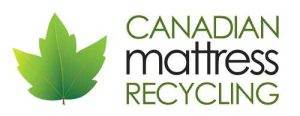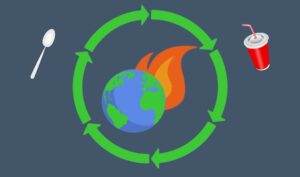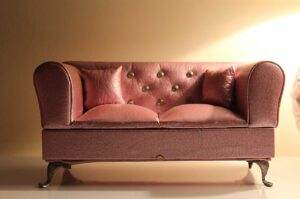Out with the old, in with the new.
Whether you’re spring cleaning or moving, sometimes it’s time to part ways with an old couch. You might be eyeing a new sectional, or want to change the entire look of your home. Regardless of the reason, many people struggle finding a way to dispose of their couches. They’re big, bulky, and hard to carry. So how are you supposed to recycle a couch?
Easy – couch recycling is possible for many Vancouverites. A local recycling facility takes upholstered furniture for recycling. Their Furniture Destroyers will dismantle all upholstered furniture, sorting the materials for reuse. All you need to do is drop off your couch at their recycling centre located on Annacis Island, Delta BC.
Metro Vancouver residents can also hire professionals to take the couch from their home. Both junk removal services and furniture recyclers offer these pickups.
How to prepare a couch for recycling
One. Keep your couch in good condition.
Whether you book a pickup service or transport it yourself, keeping your upholstered furniture dry is the first step. Many recyclers reject wet couches for recycling. To avoid having to go to the landfill, keep your couch indoors, and dry.
Two. Give your couch a good wipe or vacuum.
Recyclers try to set aside cushions and fabric for reuse by local animal shelters, but they only take clean materials. Therefore, to increase the probability of your couch to be reused, give it a wipe. Else, dirtied fabrics are sent as-is to textile recyclers.
Three. Dismantle it as much as possible.
Consider dismantling the couch as much as you can before a pickup crew arrives. Even setting cushions aside on the day of a pickup can make it easier for the crew to lift the couch down the stairs. If the couch comes in two parts – such as a chaise and couch – separating them will make the process go smoother. It’ll be easier for the crew to squeeze the item through tight doors, narrow hallways, or even fit in elevators.
When you’re ready, you have two options:
One – Transport the couch to a recycling facility
For option one, simply load up your couch in a pick up truck, strap it down, and take it to a recycling facility near you. For Metro Vancouverites, it will be Canadian Mattress Recycling, located on Annacis Island, Delta BC. In addition to mattresses, CMR dismantles upholstered furniture including couches and sectionals. Be sure to check their hours and recycling rates before you go.
Two – Let a pickup crew take the couch away
Metro Vancouverites have the option of letting their city, or a private company, haul away their couch. Large item pickups can be arranged through your city’s waste disposal department. Otherwise, pickup crews from junk removal companies can take the couch off your hands. Be sure to choose a company that will recycle your couch. Recycling a couch is good for the environment.
Couch Recycling – Why It Matters
These days, couches and sofas last more than a decade, but when it’s time to dispose of your old couch, recycling is an option for Metro Vancouver residents.
But you may be wondering, why should I bother recycling a couch?
Couches are made out of high quality materials from exotic wood and high-end fabrics. Even cushions and the foam inside of them may be of high quality. It’s a shame to just throw these away in the landfill when a more sustainable option is available.
1. Landfilled couches take over 80 years to decompose.
Depending on the fabrics and construction, a couch can take decades to decompose fully. Metal springs or wooden frames take time to wear out in the natural elements. Some couches have been reported to take up to 60 – 80 years to decompose. This is roughly eight times the time the couch has been in use in your home!
2. Couches occupy a lot of space in landfills.
Couches, due to their size and bulkiness, take up a lot of landfill space. And because they also take a long time to decompose, these pieces of furniture clog up landfills. This makes it harder for landfills to accept additional couches, or items, if they’re almost at full capacity. And these days, expanding a landfill site may damage local ecosystems and natural habitats.
3. Recycling couches avoids illegal dumping
When more companies offer couch pickup and recycling services, it reduces the likelihood of the couch ending up on the side of the road. Couches are often dumped illegally in back alleys when people move or spring clean. This costs cities hundreds of thousands of dollars a year to clean up. Therefore, when couch recycling is affordable and convenient, it helps the environment and the city.
4. Decomposing couches can be toxic.
The materials used to make a couch can be toxic when it starts to decompose. This occurs for all couches whether they are in landfills or dumped illegally on the side of a road. Many couch fabrics have been chemically treated. The wood and metal too, when they decompose, can cause a variety of problems. For example, wood could attract pests and bugs. Deteriorating metals could react with rain and sun. The entire couch, when decomposing, would turn into toxic sludge that seeps into our soils, and into our groundwater.
5. Couch recyclers support local economies.
Because most specialized recyclers are locally operated, they support local economies. A city and its residents become more self-sufficient if a specialized recycler can thrive. For example, taking a couch to a recycler supports local jobs when you pay for the recycling. Instead of having the couch sent to a landfill, where it either sits there, or gets shipped overseas for dismantling, a local couch recycler would keep valuable materials, reduce emissions, and support the local economy.
Canadian Mattress Recycling Inc. is a recycling centre located on Annacis Island, Delta BC. Since 2011, we have helped Metro Vancouver residents recycle over 25 million lbs of mattresses and furniture. We have also supported over 90+ organizations through donations and our blogging efforts. Read about the other organizations we have supported in the past.





